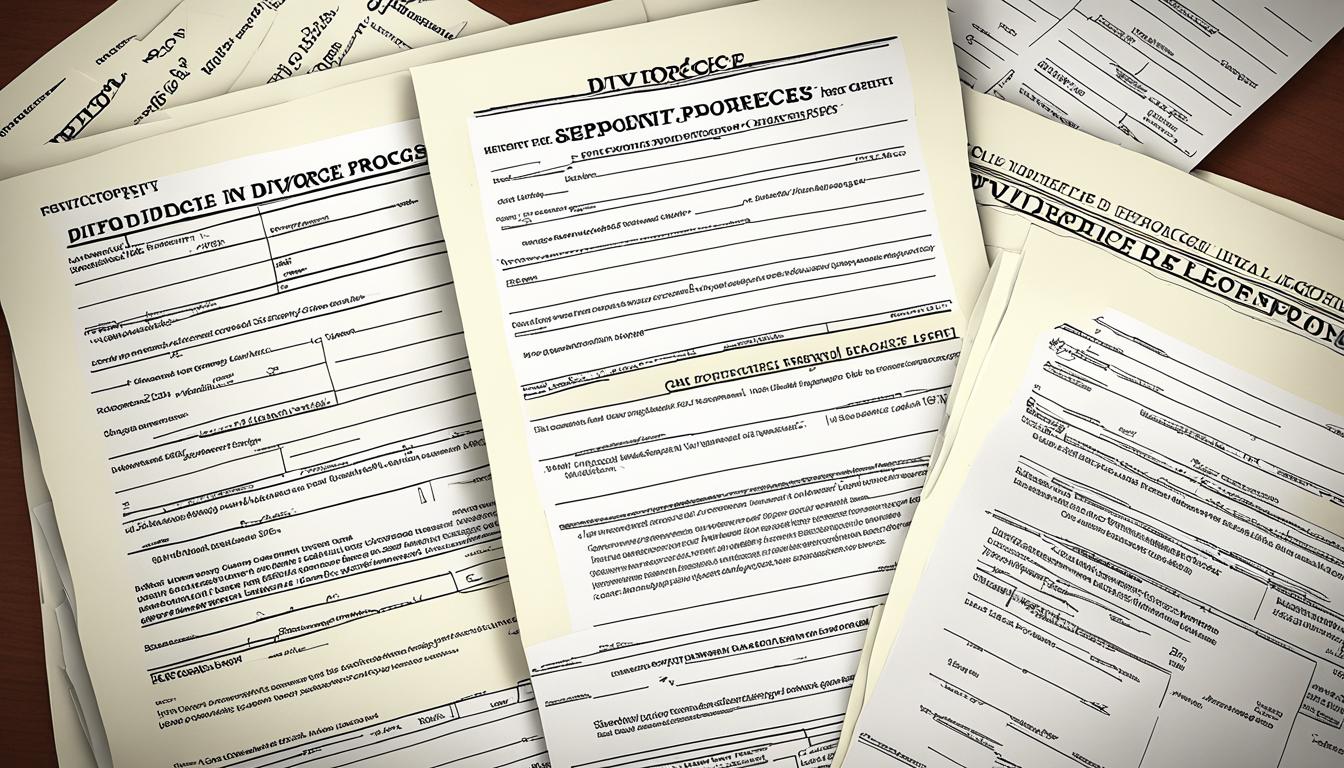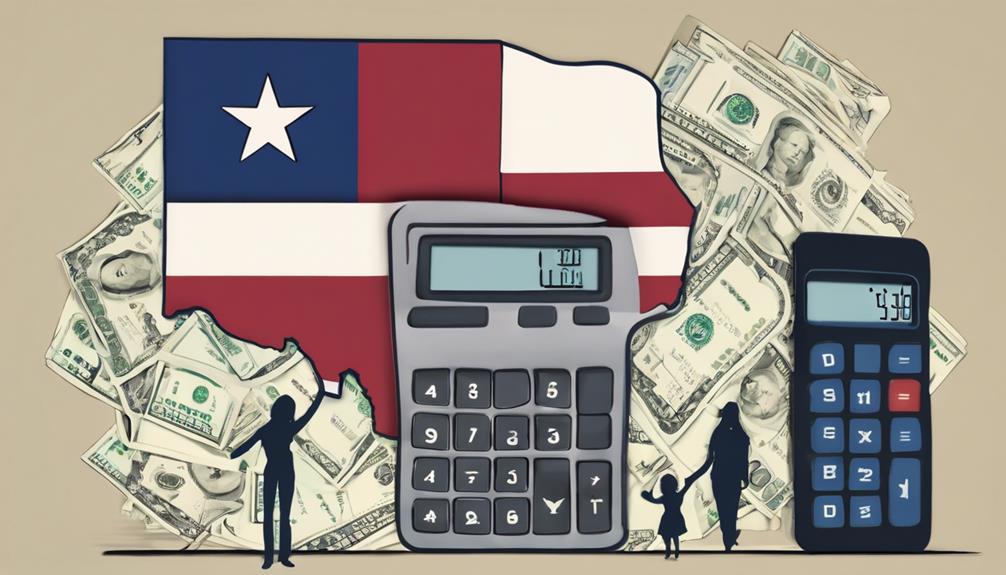For a straightforward online divorce in Hawaii, these steps should be followed: Familiarize yourself with residency requirements, as the spouse filing for divorce must have been living in the state for at least 3 months. Understand the legal reasons for divorce, such as irreparable breakdown of the marriage. Consider opting for an uncontested divorce for simplicity and to save time. Utilize professional online services to assist with Hawaii-specific forms. Respond promptly to divorce documents to avoid decisions being made without your input. Provide thorough financial disclosures for a fair division of property. Complete the process by obtaining court approval and submitting all necessary paperwork. Each step helps streamline the divorce proceedings effectively.
Key Takeaways
- Establish Hawaii residency for 3 months.
- Understand legal grounds for divorce in Hawaii.
- Opt for uncontested divorce for efficiency.
- Provide accurate financial disclosures.
- Finalize with court approval and required documents.
Residency Requirements in Hawaii
Before initiating divorce proceedings in Hawaii, it's essential that the filing spouse has resided in the state for a minimum of three months. However, in order for the divorce to be approved, the spouse must have been a resident of Hawaii for at least six months.
Establishing residency can be accomplished through various methods such as holding a Hawaii driver's license, ID card, or voter's registration card. Furthermore, testimony from a knowledgeable individual acquainted with the spouses or an Affidavit of Corroborating Witness can also confirm residency status.
It's important to meet these residency requirements before commencing the divorce process in Hawaii. By ensuring that the filing spouse has fulfilled these conditions, the divorce proceedings can progress smoothly. It's vital to have the appropriate documentation and evidence in place to demonstrate that the residency criteria have been met to prevent any delays or complications in the divorce process.
Legal Grounds for Divorce

Legal grounds for divorce in Hawaii primarily revolve around the concept of an irretrievable breakdown of the marriage. This means that if a couple's relationship has reached a point where it can't be mended, they meet the legal grounds for divorce in Hawaii.
Additionally, living separate and apart for a minimum of two years is another valid ground for divorce in the state. Hawaii only recognizes 'no-fault' grounds for divorce, meaning that neither party needs to prove fault or blame for the marriage's breakdown.
A legal separation decree can also serve as a basis for divorce in Hawaii, aligning with the provisions of Haw. Rev. Stat. 580-1 (2022). Understanding these legal grounds is essential when considering an online divorce in Hawaii, as meeting these criteria is vital for a smooth divorce process.
Opting for Uncontested Divorce
Choosing an uncontested divorce in Hawaii can simplify the legal process, save time, and reduce costs considerably. By agreeing on all terms without court involvement, couples can streamline their divorce proceedings efficiently.
Opting for an uncontested divorce is often the preferred route for those seeking a quicker, more cost-effective dissolution of marriage.
Simplifying Legal Process
Choosing an uncontested divorce in Hawaii can greatly simplify the legal process involved in ending a marriage. This type of divorce, where both spouses agree on important aspects like property division, alimony, child support, and custody, can lead to a faster resolution. Uncontested divorces often lead to the creation of a marital settlement agreement, which outlines the agreed-upon terms and facilitates a smoother process.
Saving Time and Money
Opting for an uncontested divorce in Hawaii not only simplifies the legal procedure but also results in significant time and cost savings. Couples in agreement on aspects like property division and child custody can benefit from this cost-effective option.
Uncontested divorces are known for their quick resolution, making them a popular choice for those seeking a simplified and efficient process. By avoiding disputes and lengthy court battles, individuals can save on legal fees and expedite the divorce proceedings.
Choosing an uncontested divorce online in Hawaii can streamline the entire experience, providing a quicker and more affordable solution for those looking to dissolve their marriage amicably.
Professional Help and Online Services

Online divorce services like OnlineDivorce.com offer affordable assistance with Hawaii-specific forms, providing completed divorce papers ready for filing at a cost of $139. By utilizing these services, individuals can easily navigate the legal requirements of divorce in Hawaii without the need for expensive attorneys.
Users simply fill out a straightforward questionnaire on the website, generating personalized documents tailored to their specific situation. Detailed filing instructions and all necessary forms can then be downloaded, guiding individuals through the process efficiently.
This online support streamlines the divorce process, making it more accessible and cost-effective for couples looking to dissolve their marriage amicably. Whether dealing with matters of child support, residency requirements, or uncontested divorces, these services simplify the paperwork and procedures involved.
Responding to Divorce Papers

When responding to divorce papers in Hawaii, individuals must address issues related to support, custody, and property division within 20 days. This step is pivotal in the divorce process to guarantee all matters are properly handled.
Respondents are required to provide financial disclosures, outlining their income, expenses, assets, and debts. Additionally, completing a parenting education course is mandatory for divorcing parents in Hawaii.
Failure to respond within the specified time frame may result in the court making decisions without your input. Understanding and meeting these requirements set by the Circuit Court is vital to move forward with the divorce proceedings smoothly.
Responding to divorce papers also involves addressing matters concerning child support and ensuring that your financial condition is accurately presented. By fulfilling these obligations promptly and thoroughly, individuals can navigate the divorce process efficiently and effectively.
Financial Disclosure Requirements

Financial disclosure in a Hawaii divorce proceedings necessitates the provision of detailed income and expense statements, along with asset and debt statements. Full transparency is required by the court to guarantee a fair division of property. It's crucial to complete these financial disclosures accurately to avoid legal consequences during the divorce process. Failing to disclose all financial information can lead to complications and potentially unfair outcomes.
To navigate this part of the divorce process smoothly, individuals must make sure they provide all necessary financial details. This includes stating their income, outlining expenses, and listing assets and debts truthfully. By doing so, they contribute to a fair assessment of the marital estate and facilitate a more equitable distribution of property.
Finalizing the Divorce Process

Finalizing a divorce in Hawaii involves obtaining court approval and filing the final documents. This step typically doesn't require a court appearance unless there are children involved.
If needed, a court hearing is scheduled to address any remaining issues before the divorce is officially finalized.
Court Approval Needed
To officially end a marriage and resolve related issues in Hawaii, court approval is required to finalize the divorce process. The court carefully reviews the divorce documents and issues a final judgment, ensuring all legal requirements are met. This step is essential in the Hawaii divorce process as the judge's approval officially ends the marriage and resolves any lingering issues. Finalizing a divorce typically takes 30 to 90 days after filing, and this court approval is a key part of the timeline. Below is a table summarizing the significant aspects of court approval in the Hawaii divorce process:
| Aspect | Importance | Process |
|---|---|---|
| Court Approval | Essential | Review of documents and issuing judgment |
| Legal Requirements | Critical | Ensuring compliance with laws |
| Judge's Approval | Crucial | Officially ending the marriage |
| Divorce Timeline | Important | Typically 30 to 90 days after filing |
Filing Final Documents
Submitting the final documents with the court is an essential step in finalizing the divorce process in Hawaii. These documents, such as the Marital Settlement Agreement and Parenting Plan if children are involved, are vital for obtaining the divorce decree. The court will carefully review these final documents to make sure they meet all legal requirements.
Once the final documents are filed and approved, the parties will be officially divorced, marking the completion of the Hawaii divorce process. Online divorce services can assist in preparing these final documents accurately and efficiently, streamlining the process for those seeking a quick and straightforward way to dissolve their marriage.
Frequently Asked Questions
Can You File for Divorce Online Hawaii?
Yes, in Hawaii, individuals can file for divorce online. This method offers a convenient and cost-effective way to complete and submit necessary forms. Online services provide detailed guidance tailored to Hawaii's specific divorce requirements, saving time and hassle.
How Fast Can You Get a Divorce in Hawaii?
Getting a divorce in Hawaii can be quick, taking 30 to 90 days with an uncontested case. Factors like court workload and judge availability may affect the timeline. Online services like 3StepDivorce can speed up the process.
Is Hawaii Online Divorce Legit?
Yes, Hawaii online divorce is legitimate. Couples can efficiently end their marriage through reputable online services like Onlinedivorce.com, meeting legal requirements and ensuring successful outcomes. Positive reviews support the legitimacy of online divorce in Hawaii.
How Much Is an Uncontested Divorce in Hawaii?
An uncontested divorce in Hawaii typically costs between $139 to $299 with online services like OnlineDivorce.com. This cost-effective option allows couples to save on attorney fees and court costs, making the process more affordable and streamlined.
Conclusion
To sum up, maneuvering the online divorce process in Hawaii can be as simple as following a well-marked path. By meeting residency requirements, opting for uncontested divorce, seeking professional assistance, and fulfilling financial disclosure obligations, couples can smoothly finalize their divorce.
Just like a compass guiding travelers through uncharted territory, these steps can lead couples through the divorce journey with clarity and direction, ultimately reaching a resolution that allows them to move forward with their lives.










